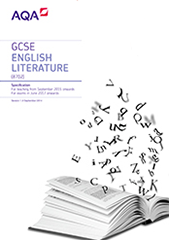3.3 Skills
In studying the set texts students should have the opportunity to develop the following skills.
Reading comprehension and reading critically
- literal and inferential comprehension: understanding a word, phrase or sentence in context; exploring aspects of plot, characterisation, events and settings; distinguishing between what is stated explicitly and what is implied; explaining motivation, sequence of events, and the relationship between actions or events
- critical reading: identifying the theme and distinguishing between themes; supporting a point of view by referring to evidence in the text; recognising the possibility of and evaluating different responses to a text; using understanding of writers’ social, historical and cultural contexts to inform evaluation; making an informed personal response that derives from analysis and evaluation of the text
- evaluation of a writer’s choice of vocabulary, grammatical and structural features: analysing and evaluating how language, structure, form and presentation contribute to quality and impact; using linguistic and literary terminology for such evaluation
- comparing texts:comparing and contrasting texts studied, referring where relevant to theme, characterisation, context (where known), style and literary quality; comparing two texts critically with respect to the above
Writing
- producing clear and coherent text: writing effectively about literature for a range of purposes such as: to describe, explain, summarise, argue, analyse and evaluate; discussing and maintaining a point of view; selecting and emphasising key points; using relevant quotation and using detailed textual references
- accurate Standard English: accurate spelling, punctuation and grammar.
